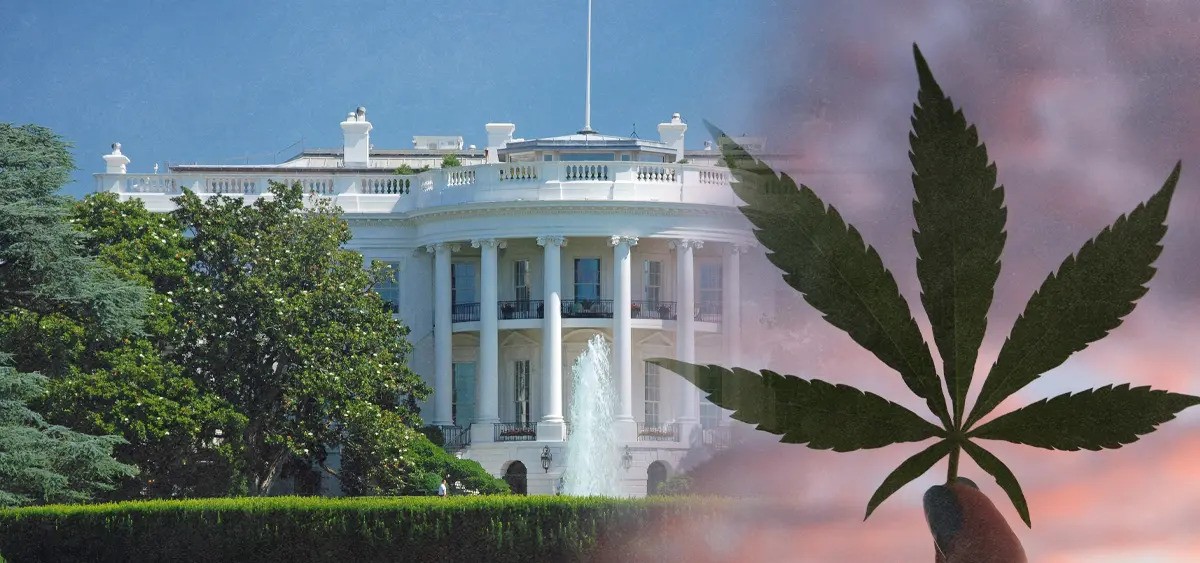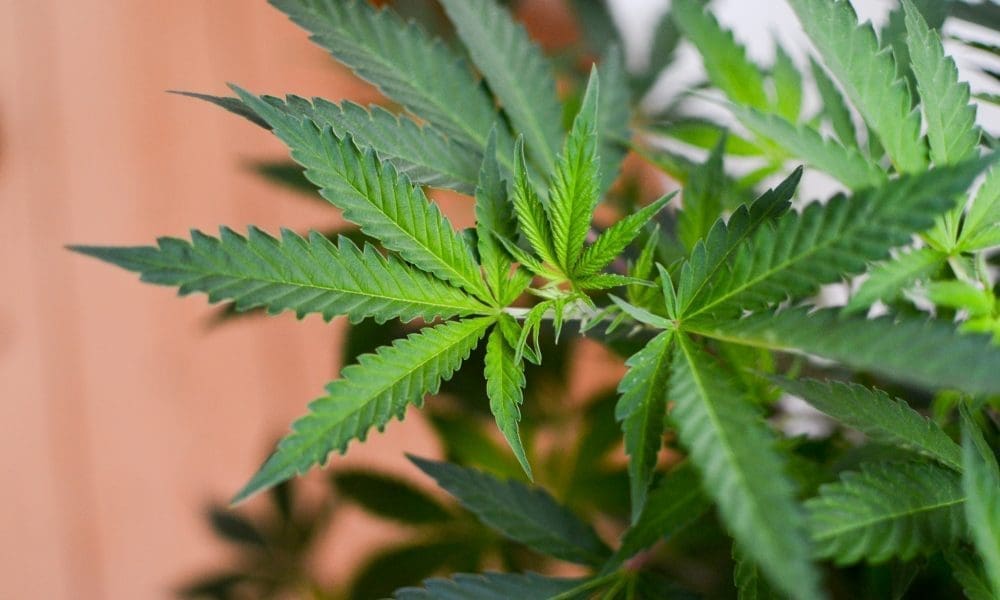featured
Colorado Healing Center Facilitates First Psilocybin Session Under Voter-Approved Psychedelics Legalization Law
Published
9 hours agoon

For the first time, a Colorado patient has taken a legal supervised dose of psilocybin under the state’s natural medicine program. That’s according to the The Center Origin, which in April became the state’s first licensed healing center as part of a buildout of the voter-approved system that was completed last month.
“Big news,” the facility’s CEO and founder, Elizabeth Cooke, said on social media on Sunday. “Last week, we held our very first psilocybin session for psychedelic-assisted healing.”
“A milestone moment is here and a new chapter in healing has begun!” she wrote. “This marks the beginning of our work offering safe, intentional, and transformative psychedelic-assisted healing experiences to those seeking deeper growth and restoration.”
Colorado regulators last month certified the first testing laboratory for the natural medicine program, putting the final piece of the state’s psychedelic infrastructure in place.
Following that step, Gov. Jared Polis (D) announced that the second-in-the-nation state psychedelics program was “fully launched for operations.”
Cooke had previously announced on Friday that psilocybin, “grown in a state-regulated facility, officially arrived” at her healing center the week before.
Colorado’s voter-approved program allows licensed facilitators to conduct therapeutic sessions using psilocybin, a main active ingredient in psychedelic mushrooms.
As of last week, regulators at the Department of Revenue’s Natural Medicine Division had approved two standard and six microbusiness healing center licenses, three standard cultivation licenses, two product manufacturing licenses and one testing license.
Advocates for psychedelic reform cheered the launch of psilocybin sessions in Colorado
Tasia Poinsatte, Colorado director for the nonprofit Healing Advocacy Fund, called the news “an incredible milestone—not just for our state, but for the meany people who have been waiting and hoping for a new option to help them heal.”
“Coloradans are now sitting down with licensed facilitators in safe, supportive environments and beginning their healing journeys with psilocybin,” she said in a statement on Monday. “This moment is the culmination of thoughtful, community-driven policymaking and years of research showing that psychedelic therapies can offer real relief where other treatments have failed.”
Polis signed a bill to create the regulatory framework for psychedelics in 2023, following voters’ passage of the legalization law the year before.
Oregon voters previously legalized therapeutic psilocybin in 2020.
Poinsatte told Marijuana Moment last month that so far the program had “been rolled out very thoughtfully, very carefully.”
Compared to Oregon’s law, she said in an interview, Colorado’s allows “greater integration with other forms of healthcare,” pointing, for example, to the ability of providers such as therapists to offer in-office administration of psilocybin rather than needing to secure and operate a standalone psychedelic clinic.
“We’ve done a lot of advocacy to try to create more affordable options,” she explained, “and part of that is just flexibility of options.”
Earlier this month, meanwhile, Polis signed into law a separate bill to facilitate pardons for low-level psychedelics possession convictions, which he said represents another step “towards a fairer future.”
The bill allows for low-level “possession of psilocybin, ibogaine, and DMT, which is now legal today, to be removed from criminal records,” the governor said.
The newly enacted legislation from Sen. Matt Ball (D) and Rep. Lisa Feret (D) authorizes governors to grant clemency to people with convictions for low-level possession of substances such as psilocybin, ibogaine and DMT that have since been legalized for adults under a voter-approved ballot initiative in 2022.
It will also require the Colorado Department of Public Health and Environment (CDPHE), Department of Revenue (DOR) and Department of Regulatory Agencies (DORA) to “collect information and data related to the use of natural medicine and natural medicine products.”
Earlier this session, Polis also signed into law a bill that would allow a form of psilocybin to be prescribed as a medication if the federal government authorizes its use.
While Colorado already legalized psilocybin and several other psychedelics for adults 21 and older through the voter-approved ballot initiative, the newly enacted reform will make it so drugs containing an isolated crystalized version synthesized from psilocybin can become available under physician prescription.
Separately in Colorado, a bill that would have limited THC in marijuana and outlawed a variety of psilocybin products died following the lead sponsor’s move to withdraw the legislation.
Photo courtesy of Wikimedia/Mushroom Observer.

Author: mscannabiz.com
MScannaBIZ for all you Mississippi Cannabis News and Information.
You may like
-


Letter to Trump Calls for Ending Federal Cannabis Arrests to Save Government Money
-


GOP Senators File Bill To Ramp Up Criminalization Of ‘Candy-Flavored’ Marijuana Edibles
-


Wisconsin Will Legalize Marijuana If Democrats Control Legislature, Governor Says, So People Can Stop Buying It Next Door In Illinois
-


D.C. Hemp Company Sues Feds Over ‘Unworkable Standard’ Created By Marijuana Budget Rider
-


Could Watertown reverse course on cannabis shops?
-


5 Ways Microdosing Cannabis Can Boost Work Performance
featured
Letter to Trump Calls for Ending Federal Cannabis Arrests to Save Government Money
Published
60 minutes agoon
June 17, 2025
In a letter to President Donald Trump (R), U.S. Senator Elizabeth Warren (D-MA) and Rep. Melanie Stansbury (D-NM) have called on the administration to end arrests for cannabis, which they say – along with the enactment of other policies – could help the government save trillions of dollars.
The lawmakers note that ending unnecessary federal arrests and reducing waste in federal detention programs alone could save the government billions of dollars.
“The government spends billions of dollars each year on unnecessary federal enforcement actions and detention, like costly marijuana arrests despite the fact that almost half of states have legalized recreational marijuana, imprisoning elderly and terminally ill patients who pose little risk to public safety, and incarcerating people for minor technical violations of probation and parole.” — Warren and Stansbury in the letter
The letter, which focuses on what the lawmakers describe as the failures of the Elon Musk-led Department of Government Efficiency or DOGE, notes that Warren had included the policy suggestion to Musk in January, but that he and DOGE had “ignored” them.
In addition to the criminal justice reforms, Warren and Stansbury call on the Trump Administration to crack down on healthcare profiteering, negotiating better Department of Defense contracts, cutting wasteful spending on education programs, closing federal loopholes in the tax code, and ending so-called “vendor-lock” in government IT contracts.
Get daily cannabis business news updates. Subscribe
Have an additional perspective to share? Send us a message to let us know, and if your comment is chosen by our editors it could be featured here.
Perspective to add? Suggest a revision or submit commentary for review using the form below.
Ganjapreneur is made possible by our partners:

Author: mscannabiz.com
MScannaBIZ for all you Mississippi Cannabis News and Information.
featured
GOP Senators File Bill To Ramp Up Criminalization Of ‘Candy-Flavored’ Marijuana Edibles
Published
6 hours agoon
June 16, 2025
A coalition of Republican senators have reintroduced a bill that would increase criminal penalties for a wide range of offenses, including manufacturing or selling Schedule I drugs like marijuana in the form of candy or beverages if there is “reasonable cause to believe” they will be sold to minors.
Led by Senate Judiciary Committee Chairman Chuck Grassley (R-IA), alongside 10 other GOP members, the Combating Violent and Dangerous Crime Act contains provisions targeting substances that are in Schedule I or II of the federal Controlled Substances Act (CSA), including cannabis.
While certain legal marijuana states have proactively taken steps to prohibit cannabis marketing that might appeal to children, many state markets continue to allow THC-infused beverages and sell edible gummies and cookies, for example.
The Senate legislation itself doesn’t explicitly mention marijuana, but a section-by-section analysis says that “manufacturers and traffickers of marijuana edibles and fentanyl and other illicit drugs are marketing and distributing these highly dangerous drugs as packaged candy (Nerds, Skittles, etc.).”
“For years, there have been reports of children, even younger than 6 years old, overdosing on these drugs due to edible consumption,” it says. “This provision is the language of the 2017 Grassley-Feinstein Protecting Kids from Candy-Flavored Drugs Act, which has not been reintroduced as a bipartisan measure this Congress. The language amends the Controlled Substances Act to provide enhanced penalties for marketing candy-flavored controlled substances to minors.”
The language in the current legislation also mirrors a version of the bill that Grassley and other Republican lawmakers filed in 2022.
In a press release, Grassley blamed the Biden administration for what he described as a “massive spike in violent crime,” and he said it’s now the responsibility of Congress “to resolve any legal ambiguities that may weaken our ability to hold criminals fully accountable.”
With respect to the flavored drugs provisions, it should be noted that every state that has legalized marijuana for adult use in the U.S. has set an age limit that prevents people under 21 from legally accessing cannabis shops. Those dispensaries, and the brands they sell, therefore generally would not seem to meet the criteria for knowingly selling to underage people. (Studies have found consistent compliance at marijuana shops when it comes to enforcing ID requirements.)
If Grassley’s legislation is enacted, one possible effect would be that people who are federally prosecuted for such criminal activity could face up to 10 additional years in prison for a first offense if the cannabis product sold to a person under 18 was shaped or flavored like candy. Second and subsequent offenses would carry up to 20 additional years in prison.
Legalization advocates largely support measures to restrict access to underage people, but some bristle at the possibility of enacting significantly increased penalties that could be applied by overzealous prosecutors as part of the war on drugs.
“Soft-on-crime policies have failed to ensure our justice system and law enforcement at all levels have the necessary authorities and tools to maintain order and protect communities from dangerous criminals,” Sen. John Boozman (R-AR), the co-lead on the measure, said. “I am proud to join Senator Grassley and my colleagues to ensure violent offenders are held accountable under the law.”
Unlike Grassley’s press release, Boozman’s specifically states that provisions of the bill would “outlaw the marketing of candy-flavored drugs including marijuana and fentanyl to minors.”
Other cosponsors are Sens. Mike Crapo (R-ID), Kevin Cramer (R-ND), Bill Cassidy (R-LA), James Lankford (R-OK), Mitch McConnell (R-KY), Susan Collins (R-ME), Shelley Moore Capito (R-WV), Thom Tillis (R-NC) and Jim Risch (R-ID).
“Our legal system has a duty to punish the guilty and protect the innocent, and conflicting legal standards hamper the ability of federal authorities to do so,” Crapo said in a press release circulated by his office. “These necessary reforms clarify and strengthen federal drug and violent crime laws to ensure justice is applied fairly to all.”
Photo courtesy of Pexels/Kindel Media.

Author: mscannabiz.com
MScannaBIZ for all you Mississippi Cannabis News and Information.
featured
Wisconsin Will Legalize Marijuana If Democrats Control Legislature, Governor Says, So People Can Stop Buying It Next Door In Illinois
Published
7 hours agoon
June 16, 2025
The governor of Wisconsin says that, if Democrats take control of the legislature now that new “fair” district maps have been set, the state can “finally” legalize marijuana so that residents don’t have to go to neighboring Illinois to patronize its adult-use market.
During a speech at the Democratic Party of Wisconsin’s 2025 convention on Sunday, Gov. Tony Evers (D) said “Republicans better start getting used to Democrats being in power in the state,” as the new redistricting map he approved last year could deliver the party a “Democratic trifecta,” with control of the Assembly, Senate and governor’s office.
That would free up lawmakers to overcome roadblocks in the currently conservative legislature that have prevented the advancement of several key issues, including health care expansion, parental leave and, “yes, we could finally legalize marijuana so we can stop sending our revenue down to my good friend, [Gov. J.B. Pritzker (D)] down in Illinois,” he said.
“He’s got enough,” Evers joked.

“If we want to finally end the obstruction of Madison, we have to get to work—and we can’t wait. We have to start today,” he said. “If we want majorities that will finally get things done in the legislature, then our work starts right now.”
“We knock on doors, we make the calls, we organize from our kitchen tables to our communities—we fight back and we never stop fighting for what’s right,” the governor said. “Winning 2026 starts now. Let’s go fight to win every vote for every seat and in every election, and let’s get to work.”
Senate Minority Leader Dianne Hesselbein (D) also briefly touched on the issue at the convention, saying “we will also legalize cannabis” among other priorities in the Democratic agenda if the party wins a legislative majority in next year’s elections.

The governor and top Democratic senator’s comments come about a month after Republicans cut key provisions from a state budget proposal from Evers, including plans to legalize and regulate marijuana.
The actions are a repeat of two years ago, when GOP members of the same committee removed proposals to legalize cannabis for recreational and medical use from the governor’s biennial executive budget at that time.
Evers included the latest marijuana legalization plan in his biennial budget request to lawmakers in February, projecting at the time that the change would result in “$58.1 million in revenue in fiscal year 2026-27 and growing amounts in future years.”
Under current Wisconsin law, cannabis is illegal for both recreational and medical purposes.
The legalization proposal would have imposed a 15 percent wholesale excise tax and a 10 percent retail excise tax on recreational cannabis products. It would additionally “create a process for individuals serving sentences or previously convicted of marijuana-related crimes to have an opportunity to repeal or reduce their sentences for nonviolent minor offenses.”
The companion bills that were filed in tandem with the governor’s budget request stipulate that all revenue collected from the proposed cannabis taxes will be deposited into the state general fund.
—
Marijuana Moment is tracking hundreds of cannabis, psychedelics and drug policy bills in state legislatures and Congress this year. Patreon supporters pledging at least $25/month get access to our interactive maps, charts and hearing calendar so they don’t miss any developments.![]()
Learn more about our marijuana bill tracker and become a supporter on Patreon to get access.
—
Despite Republicans’ move to cut legalization from the budget legislation, party leaders recently acknowledged that the debate over medical marijuana legalization is “not going to go away,” and there’s hope it can be resolved this session.
“I don’t think anyone is naive enough to think that marijuana and THC products aren’t present in the state of Wisconsin when they are readily available over state lines, so I think we need to come to an answer on this,” Assembly Majority Leader Rep. Tyler August (R) said in February. “I’m hopeful that we can.”
“If we’re going to call it medical marijuana, it needs to be treated like a pharmaceutical. But the marijuana debate is going to be something that is not going to go away,” Sen. Dan Feyen (R), the assistant majority leader, said at the time. “The margins are tighter.”
There have been repeated attempts to legalize medical marijuana in the legislature over recent years, including the introduction of legislation from Assembly Speaker Robin Vos (R) that called for a limited program facilitated through state-run dispensaries. That proved controversial among his Republican colleagues, however, and it ultimately stalled out last year.
Evers previewed his plan to include marijuana legalization in his budget in January, while also arguing that residents of the state should be allowed to propose new laws by putting binding questions on the ballot—citing the fact that issues such as cannabis reform enjoy sizable bipartisan support while the GOP-controlled legislature has repeatedly refused to act.
Previously, in 2022, the governor signed an executive order to convene a special legislative session with the specific goal of giving people the right to put citizen initiatives on the ballot, raising hopes among advocates that cannabis legalization could eventually be decided by voters. The GOP legislature did not adopt the proposal, however.
Evers said in December that marijuana reform is one of several key priorities the state should pursue in the 2025 session, as lawmakers work with a budget surplus.
Days after he made the remarks, a survey found the reform would be welcomed by voters in rural parts of the state. Nearly two thirds (65 percent) said they support legalizing cannabis.
Last May, the governor said he was “hopeful” that the November 2024 election would lead to Democratic control of the legislature, in part because he argued it would position the state to finally legalize cannabis.
“We’ve been working hard over the last five years, several budgets, to make that happen,” he said at the time. “I know we’re surrounded by states with recreational marijuana, and we’re going to continue to do it.”
A Wisconsin Democratic Assemblymember tried to force a vote on a medical cannabis compromise proposal last year, as an amendment to an unrelated kratom bill, but he told Marijuana Moment he suspects leadership intentionally pulled that legislation from the agenda at the last minute to avoid a showdown on the issue.
Meanwhile, the state Department of Revenue released a fiscal estimate of the economic impact of a legalization bill from then-Sen. Melissa Agard (D) in 2023, projecting that the reform would generate nearly $170 million annually in tax revenue.
A legislative analysis requested by lawmakers estimated that Wisconsin residents spent more than $121 million on cannabis in Illinois alone in 2022, contributing $36 million in tax revenue to the neighboring state.
Evers and other Democrats have since at least last January insisted that they would be willing to enact a modest medical marijuana program, even if they’d prefer more comprehensive reform.
Photo courtesy of Philip Steffan.

Author: mscannabiz.com
MScannaBIZ for all you Mississippi Cannabis News and Information.

Letter to Trump Calls for Ending Federal Cannabis Arrests to Save Government Money

GOP Senators File Bill To Ramp Up Criminalization Of ‘Candy-Flavored’ Marijuana Edibles

Wisconsin Will Legalize Marijuana If Democrats Control Legislature, Governor Says, So People Can Stop Buying It Next Door In Illinois

D.C. Hemp Company Sues Feds Over ‘Unworkable Standard’ Created By Marijuana Budget Rider

Could Watertown reverse course on cannabis shops?

Colorado Healing Center Facilitates First Psilocybin Session Under Voter-Approved Psychedelics Legalization Law

5 Ways Microdosing Cannabis Can Boost Work Performance

Shop LGBTQIA+ brands and dispensaries this Pride Month

Curaleaf Appoints New President, Bolsters Marketing Leadership Team

Missouri Cannabis Stakeholders Prepare 2026 Ballot Initiative To Create ‘Unified’ Marijuana And Hemp Regulations

California Public Health Department Aims to Make Hemp THC Ban Permanent

Texas Gov. Signs Bill Containing $100M for Psychedelic Research

Snoop Dogg Expands His Cannabis Brand Again, With New THCA Hemp Product Sales Website

The Best Jokes For Your Monday

Sunset Social Club Opens Hollywood’s 1st Luxury Cannabis Lounge

California Moves to Permanently Ban Hemp THC Products

Companies Challenging Federal Marijuana Prohibition Seek Supreme Court Review, But Will Justices Take The Case?

Bill on Trump’s desk could ease cannabis research, congressman says (Newsletter: June 16, 2025)

Alabama Judge Will Hear Lawsuit From Parents Over State’s Medical Marijuana Delays

State, federal cannabis changes threaten Ohio festival’s future

US Senator, Congresswoman Call on Trump to End ‘Costly Marijuana Arrests’

Ohio Lawmakers Must Close Hemp Loophole And Limit Intoxicating Products To Marijuana Dispensaries (Op-Ed)

Teacher sued for allegedly giving Denver middle school students marijuana brownies

Teacher accused of giving Denver middle school students cannabis brownies

Alert: Department of Cannabis Control updates data dashboards with full data for 2023

Connecticut Appoints The US’s First Cannabis Ombudsperson – Yes there is a pun in there and I’m Sure Erin Kirk Is Going To Hear It More Than Once!

5 best CBD creams of 2024 by Leafly

Free delta-9 gummies from Bay Smokes

EU initiative begins bid to open access to psychedelic therapies
New Study Analyzes the Effects of THCV, CBD on Weight Loss

Mississippi city official pleads guilty to selling fake CBD products

May 2024 Leafly HighLight: Pink Runtz strain

Curaleaf Start Process Of Getting Their Claws Into The UK’s National Health System – With Former MP (Resigned Today 30/5/24) As The Front Man

Horn Lake denies cannabis dispensary request to allow sale of drug paraphernalia and Sunday sales | News

5 best autoflower seed banks of 2024 by Leafly

Discover New York’s dankest cannabis brands [September 2024]

Press Release: CANNRA Calls for Farm Bill to Clarify Existing State Authority to Regulate Hemp Products

Local medical cannabis dispensary reacts to MSDH pulling Rapid Analytics License – WLBT

Nevada CCB to Accept Applications for Cannabis Establishments in White Pine County – “Only one cultivation and one production license will be awarded in White Pine County”

The Daily Hit: October 2, 2024

6 best CBD gummies of 2024 by Leafly

5 best THC drinks of 2024 by Leafly

5 best delta-9 THC gummies of 2024 by Leafly

Weekly Update: Monday, May 13, 2024 including, New Guide for Renewals & May Board meeting application deadline

People In This State Googled ‘Medical Marijuana’ The Most, Study Shows

PRESS RELEASE : Justice Department Submits Proposed Regulation to Reschedule Marijuana

Press Release: May 9, STIIIZY and Healing Urban Barrios hosted an Expungement Clinic & Second Chance Resource Fair

Thailand: Pro-cannabis advocates rally ahead of the government’s plan to recriminalize the plant
Trending
-

 California Cannabis Updates1 year ago
California Cannabis Updates1 year agoAlert: Department of Cannabis Control updates data dashboards with full data for 2023
-

 best list11 months ago
best list11 months ago5 best CBD creams of 2024 by Leafly
-

 Breaking News1 year ago
Breaking News1 year agoConnecticut Appoints The US’s First Cannabis Ombudsperson – Yes there is a pun in there and I’m Sure Erin Kirk Is Going To Hear It More Than Once!
-

 Bay Smokes12 months ago
Bay Smokes12 months agoFree delta-9 gummies from Bay Smokes
-

 Business9 months ago
Business9 months agoEU initiative begins bid to open access to psychedelic therapies
-

 cbd1 year ago
cbd1 year agoNew Study Analyzes the Effects of THCV, CBD on Weight Loss
-

 Mississippi Cannabis News1 year ago
Mississippi Cannabis News1 year agoMississippi city official pleads guilty to selling fake CBD products
-

 California1 year ago
California1 year agoMay 2024 Leafly HighLight: Pink Runtz strain

